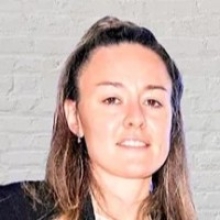CEE Seminar (ZOOM): Toward Next-generation Earthquake Early Warning, Using a Risk-informed Approach

Lecturer in Risk and Resilience Engineering
Department of Civil, Environmental & Geomatic Engineering
Faculty of Engineering Science, University College, London
Abstract: To maximize the potential of earthquake early warning (EEW) as a credible tool for seismic resilience promotion, it should be combined with next-generation decision support tools that use advanced risk-based predictions and account for unavoidable malfunctions of the system (i.e., false alarms) to determine whether or not alerts/ mitigation actions should be triggered. This presentation will discuss a novel end-user-oriented approach for EEW decision making that contributes to the required effort. The proposed methodology unifies earthquake-engineering-related performance assessment procedures/metrics (for end-user-focused damage and consequence estimation) with multicriteria decision-making tools (to consider end-user preferences toward different types of risks). The benefits of the developed approach will be demonstrated through a series of case studies, including a school building and one of Europe’s largest seaports.
Bio: Cremen is an assistant professor in risk and resilience engineering at University College, London. She specialises in developing statistical tools to support decision-making related to seismic activity and other natural hazards. She is currently working to quantify, model and communicate disaster risk within the GCRF-funded “Tomorrow’s Cities” hub (https://www.tomorrowscities.org/) and is also contributing to the ongoing development of next-generation earthquake early warning systems within the EU-funded “TURNkey” project (https://earthquake-turnkey.eu/). Prior to joining UCL, Cremen worked at the University of Bristol (UK) on improving understanding of the seismic hazard and risk associated with UK shale gas development. She completed her doctorate in earthquake engineering at Stanford University in 2019.
Share
Upcoming Events
-
MSE 298 Seminar: Quasi-1D/2D Charge-Density-Wave Materials - From Exotic Physics to Application Prospects
-
EECS Seminar: Steering Diffusion Models for Generative AI, From Multimodal Priors to Test-Time Scaling
-
CBE 298 Seminar: Finding Catalysts of Gut Reactions - The Gut Microbiota in Disease Onset and Treatment
-
CEE Seminar: Confirming a Critical Foundation of Global Warming - Direct Observational Evidence from Space of the Impact of CO2 Growth on Infrared Spectra
-
MSE 298 Seminar: Basic Materials Science Aspects In Sustainable Metallurgy
